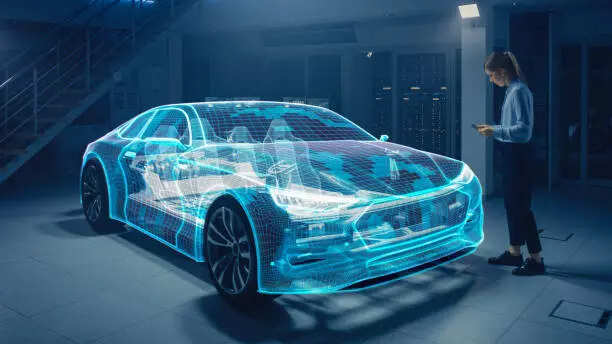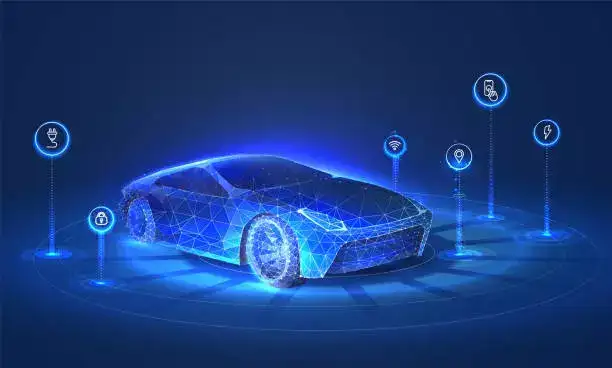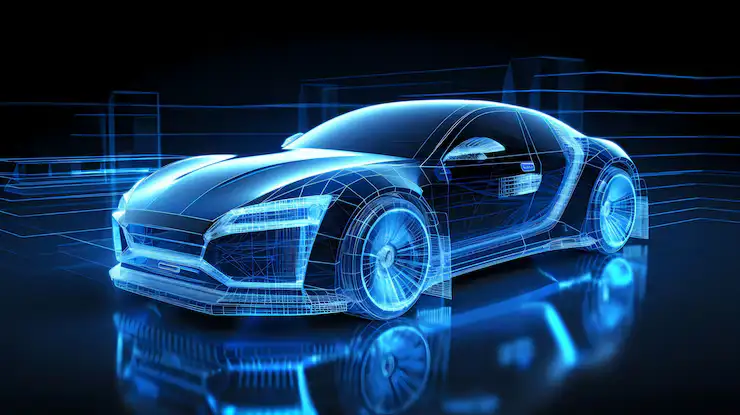How AI is Revolutionizing the Driving Experience in 2025
The year 2025 marks a pivotal moment for the automotive world, as Artificial Intelligence (AI) transforms the way we drive, interact with vehicles, and navigate our roads. What was once a futuristic concept self-driving cars and AI-assisted driving is now a tangible reality, reshaping mobility in ways that are safer, smarter, and more personalized.
Autonomous Driving: The Era of Self-Driving Cars
AI-powered autonomous vehicles have gone from concept to real-world application. Companies like Waymo, Tesla, and other global innovators are pushing the limits of full self-driving technology. Using a combination of cameras, radar, LiDAR, and AI-driven decision-making, these vehicles can navigate city streets, highways, and complex traffic scenarios with minimal human intervention.
The benefits are clear: fewer traffic accidents, optimized traffic flow, reduced emissions, and a transformative impact on urban infrastructure as parking demands decrease. Commuters are experiencing stress-free journeys while cities are witnessing smarter road management.
Enhanced Safety Through AI
Safety has always been a top priority for automakers, and AI is taking it to the next level. Advanced Driver-Assistance Systems (ADAS) now use real-time machine learning algorithms to anticipate hazards, detect pedestrians, and prevent collisions before they happen.
From adaptive cruise control to lane-keeping assistance, AI ensures faster response times and proactive safety measures, making every journey more secure. Additionally, AI aids in post-accident scenarios, helping streamline insurance claims and emergency response.

Personalizing the In-Car Experience
AI doesn’t just make driving safer it makes it smarter and more enjoyable. Vehicles now learn driver preferences, adjusting seats, climate, lighting, and infotainment systems automatically. AI assistants can provide real-time navigation tips, recommend routes, and even offer music or content based on your mood or habits.
In 2025, driving is becoming a highly personalized experience, transforming cars into intelligent companions rather than mere transportation tools.
Smarter Traffic Management
AI is no longer confined to vehicles it’s integrated into city traffic systems. By analyzing live traffic data, AI can predict congestion, optimize traffic lights, and suggest the fastest routes. This reduces travel times, cuts fuel consumption, and lowers emissions, making urban driving more efficient and environmentally friendly.
Regulatory and Ethical Considerations
As AI-driven vehicles become more prevalent, regulations are evolving rapidly. Governments are introducing frameworks to ensure safety, accountability, and ethical AI decision-making. Ensuring public trust is critical, and regulatory clarity helps foster wider adoption of autonomous and semi-autonomous vehicles.

The Road Ahead
Despite tremendous progress, challenges remain. Public trust, cybersecurity, regulatory compliance, and AI reliability are critical hurdles. Yet, the potential rewards safer roads, reduced congestion, and enhanced driving experiences underscore the revolutionary impact AI has on mobility.
In 2025, AI is not just an accessory in cars it is transforming the driving experience at every level. From self-driving cars to personalized in-car systems and intelligent traffic management, AI is making driving safer, smarter, and more enjoyable. The road ahead promises even greater innovation, heralding an era where vehicles think, adapt, and respond just like their drivers sometimes even better.

Autonomous Driving: The Era of Self-Driving Cars
AI-powered autonomous vehicles have gone from concept to real-world application. Companies like Waymo, Tesla, and other global innovators are pushing the limits of full self-driving technology. Using a combination of cameras, radar, LiDAR, and AI-driven decision-making, these vehicles can navigate city streets, highways, and complex traffic scenarios with minimal human intervention.
The benefits are clear: fewer traffic accidents, optimized traffic flow, reduced emissions, and a transformative impact on urban infrastructure as parking demands decrease. Commuters are experiencing stress-free journeys while cities are witnessing smarter road management.
Enhanced Safety Through AI
Safety has always been a top priority for automakers, and AI is taking it to the next level. Advanced Driver-Assistance Systems (ADAS) now use real-time machine learning algorithms to anticipate hazards, detect pedestrians, and prevent collisions before they happen.
From adaptive cruise control to lane-keeping assistance, AI ensures faster response times and proactive safety measures, making every journey more secure. Additionally, AI aids in post-accident scenarios, helping streamline insurance claims and emergency response.

Personalizing the In-Car Experience
AI doesn’t just make driving safer it makes it smarter and more enjoyable. Vehicles now learn driver preferences, adjusting seats, climate, lighting, and infotainment systems automatically. AI assistants can provide real-time navigation tips, recommend routes, and even offer music or content based on your mood or habits.
In 2025, driving is becoming a highly personalized experience, transforming cars into intelligent companions rather than mere transportation tools.
Smarter Traffic Management
AI is no longer confined to vehicles it’s integrated into city traffic systems. By analyzing live traffic data, AI can predict congestion, optimize traffic lights, and suggest the fastest routes. This reduces travel times, cuts fuel consumption, and lowers emissions, making urban driving more efficient and environmentally friendly.
Regulatory and Ethical Considerations
As AI-driven vehicles become more prevalent, regulations are evolving rapidly. Governments are introducing frameworks to ensure safety, accountability, and ethical AI decision-making. Ensuring public trust is critical, and regulatory clarity helps foster wider adoption of autonomous and semi-autonomous vehicles.

The Road Ahead
Despite tremendous progress, challenges remain. Public trust, cybersecurity, regulatory compliance, and AI reliability are critical hurdles. Yet, the potential rewards safer roads, reduced congestion, and enhanced driving experiences underscore the revolutionary impact AI has on mobility.
In 2025, AI is not just an accessory in cars it is transforming the driving experience at every level. From self-driving cars to personalized in-car systems and intelligent traffic management, AI is making driving safer, smarter, and more enjoyable. The road ahead promises even greater innovation, heralding an era where vehicles think, adapt, and respond just like their drivers sometimes even better.
Next Story